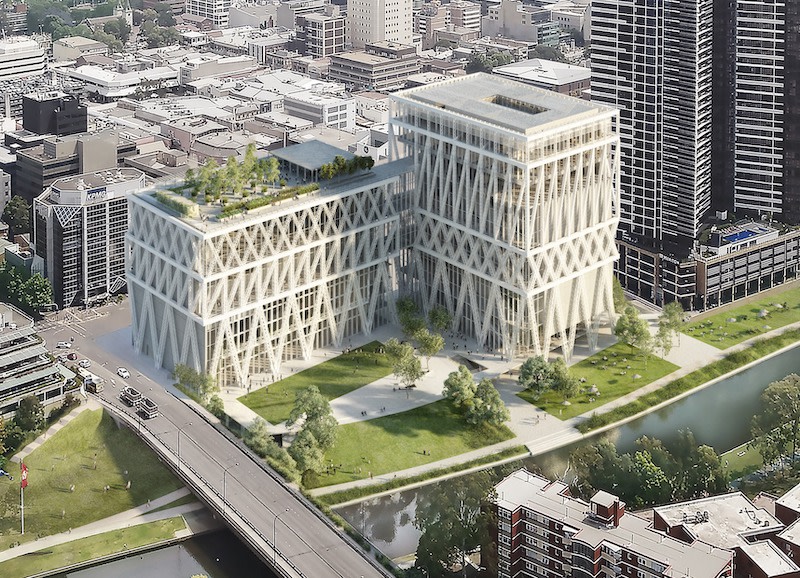Resources
Newsletter
Stay up to date and with the latest news, projects, deals and features.
Subscribe
The rising importance of ESG is poised to bring development into a new era.
It is that change to how we shape our cities’ futures that figures prominently in Sarah Slattery and her team’s work.
Slattery, who has more than 34 years of experience as a quantity surveyor in Australia and the UK, is the chief executive of the eponymous Slattery, a property and construction advisory firm specialising in early phase advisory, quantity surveying and cost management.
Her background as a quantity surveyor is in costing complex, design-oriented projects, mainly in the education, arts and culture, health and transport sectors.
She advises clients on the impacts of procurement decisions, supply chains and market conditions, and contributes to the industry through such appointments as the Australian Construction Industry Forum’s Construction Forecasting Council and GBCA’s Greenstar Advisory Committee and Responsible Products Group, among others.
Ahead of her presentation at Urbanity 23, Slattery, who is among the 50-plus presenters at the three-day event on the Gold Coast, spoke to The Urban Developer.
Slattery said that the firm had launched Australia’s first Carbon Planning Service in 2021, which advises clients on the embodied carbon in their developments and how to achieve their net zero and sustainability targets.
“This won the Property Council of Australia Innovation and Excellence Awards 2022—Award for Innovation,” she said.
“We’re expanding our service offering into advising on embodied water, modern slavery in supply chains, circularity, and indigenous procurement—all of which are becoming crucial issues for our clients.

“The demand for measurement of ESG initiatives continues to grow, and we have the expertise to advise on cost and risk implications alongside the value and benefit of addressing environmental and social imperatives for our clients.”
Embodied carbon emissions are forecast to become the dominant source of greenhouse gas emissions in the Australian construction industry – rising to an estimated 85 per cent of the sector’s emissions footprint by 2050, Slattery said.
“Targeted action to reduce embodied carbon emissions is crucial for Australia to meet its obligations under the legally binding international climate change treaty, the Paris Agreement.
“While there are currently no mandatory embodied carbon regulations in Australia, we expect this to change.
“Companies that begin to measure the embodied carbon in their projects now will upskill their workforce, drive a shift in culture and get ahead of inevitable regulation.”
Ongoing investment in transport, health and education infrastructure that serve the community will provide myriad opportunities for the sector in the short to medium future, as well as solutions to address the acute demand for housing in Australia, according to Slattery.
“With mortgage rates continuing to rise and property prices effectively locking out many first home buyers, build-to-rent will continue to grow,” she said.
“We are already seeing a huge focus on sustainable development, and this will be considered business as usual in the foreseeable future.
Urbanity, Australia’s premier conference for the property industry, brought to you by The Urban Developer, will be held August on 29-31, 2023 on the Gold Coast
Highlights include:
Three days of inspired learning and connection
50-plus speakers across multiple stages
700-plus industry leaders
Interactive roundtables
Curated networking events
Immersive exhibits and site tours
Urbanity is a must-attend event for anyone involved in the development of cities and places.
Click here to purchase your ticket or learn more.